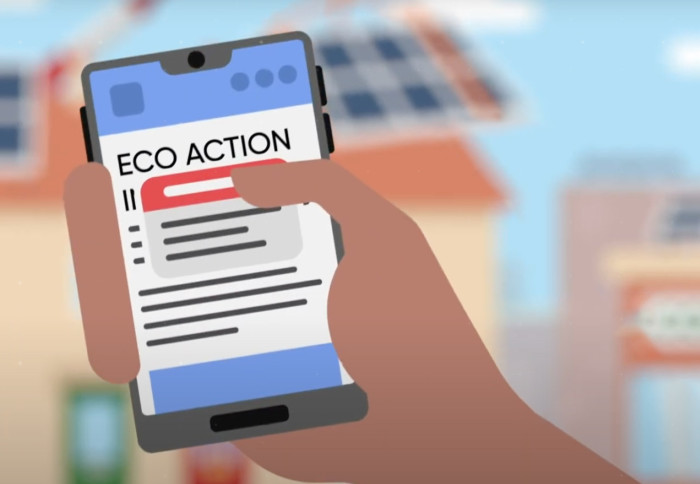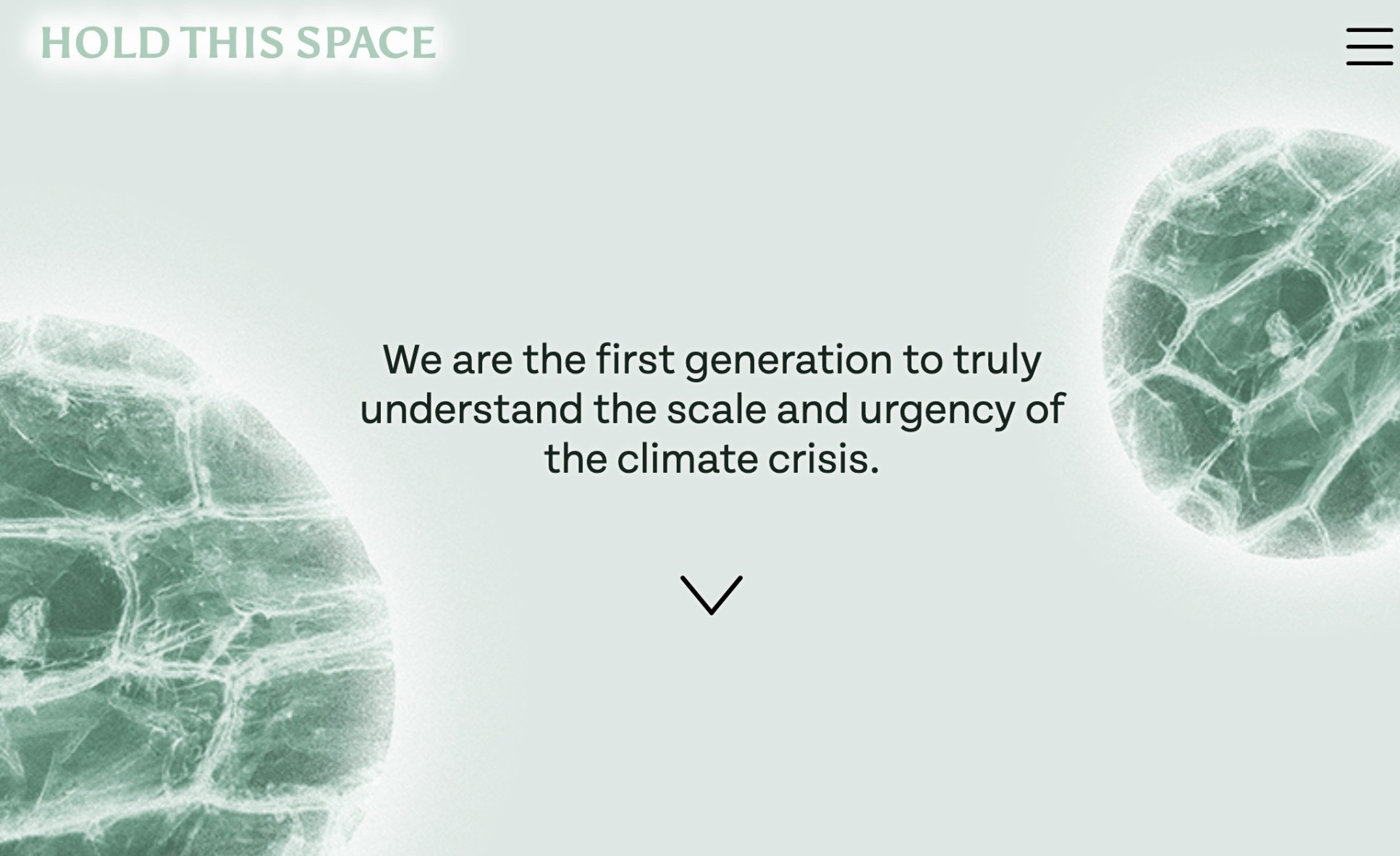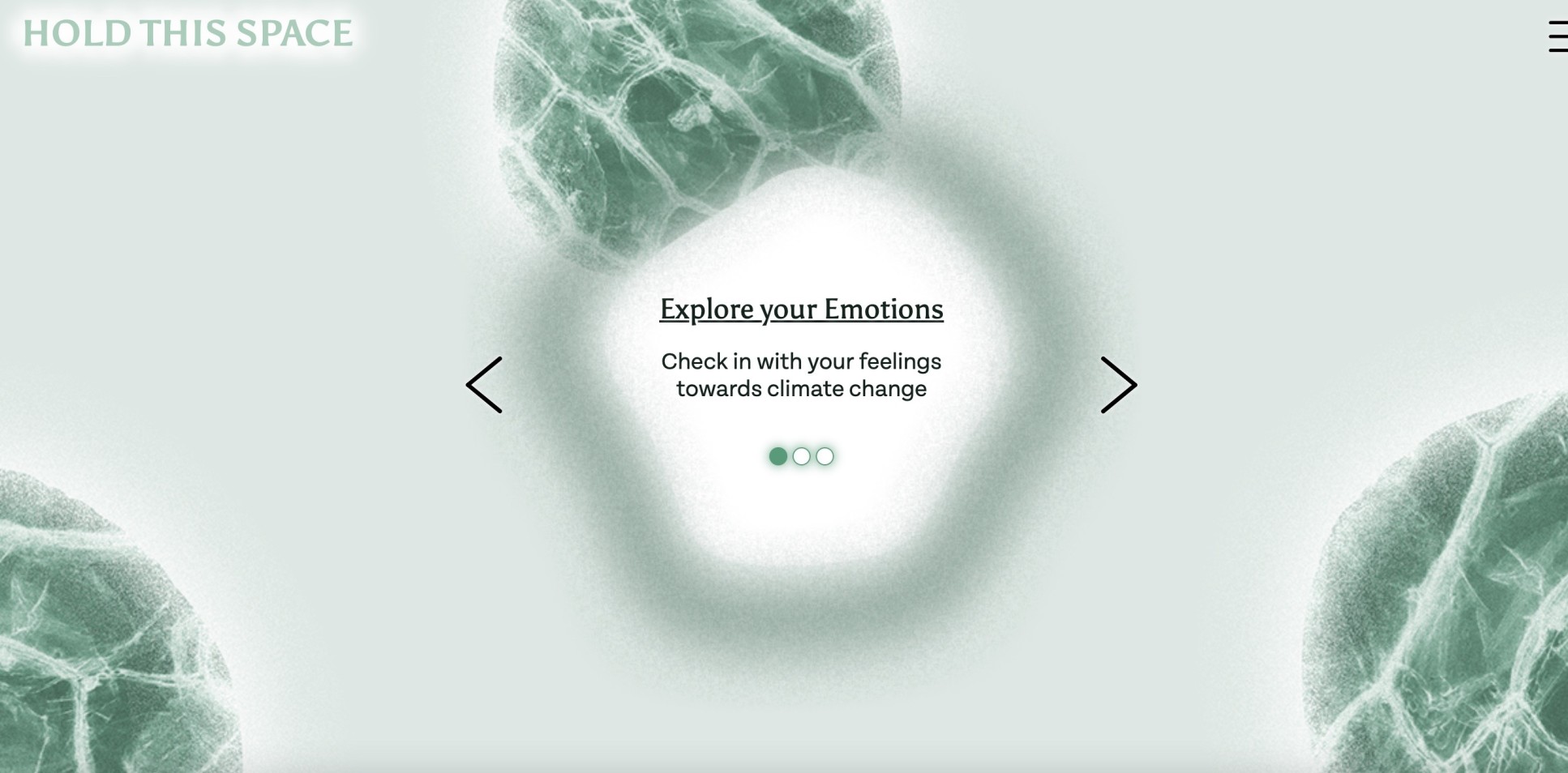New website helps people process and act on their climate emotions

A new digital tool to help young people and environmental scientists better understand and cope with their emotions about climate change has launched.
The website aims to help these groups turn their feelings about climate change such as eco-anxiety, grief and guilt into effective climate action, while also helping them to develop coping skills and resilience.
"Young people are longing for ways they can process their emotions, move through feelings of overwhelm and hopelessness, and channel that into meaningful climate action." Pip Batey Institute of Global Health Innovation
Young people and environmental scientists are being targeted because research has shown they may be more vulnerable to their mental health being impacted by the climate crisis, for example because environmental scientists are confronted with the reality of the climate crisis on a daily basis through their work, while young people may feel their futures are threatened.
Called ‘Hold this Space’, the website takes people through a series of activities to help them reflect on their climate-related thoughts and feelings, imagine what a more positive future looks like based on the latest science, and consider what they can do to help make this future a reality.
The activities were co-designed with climate and environmental scientists, psychologists and young people, in response to rising recognition of how climate change can impact people’s mental health and wellbeing, and the lack of available support for people experiencing these effects.
The project is led by Common Vision, in partnership with Imperial programme Climate Cares – a collaboration between the Institute of Global Health Innovation and the Grantham Institute - Climate Change and the Environment – and Force of Nature. It is funded by the National Environmental Research Council (NERC).
Pip Batey, Designer at the Institute of Global Health Innovation, said: “Young people are longing for ways they can process their emotions, move through feelings of overwhelm and hopelessness, and channel that into meaningful climate action. Scientists are also searching for ways to make a difference, share powerful insights from their environmental research with different communities, and have more in-depth and nuanced conversations around eco-emotions."
The mental health impacts of climate change
Evidence is growing that climate change is harming the mental health of people across the world. These effects can be through people directly experiencing the consequences of a warming planet, such as trauma following a natural disaster. They can also result from awareness of such impacts, for example through the news and social media, which can trigger a range of feelings from doom to determination, anger to apathy.
Research has shown that some groups are more at risk of these impacts, such as women, young people, people documenting the ongoing climate emergency such as those working in climate-related careers, and indigenous communities. For example a major recent study found that 6 in 10 children and young people surveyed worldwide were very worried about climate change while three-quarters thought the future was frightening.
Although such feelings can be detrimental to people’s mental health and wellbeing without appropriate support, they are understandable and rational given the size and scale of the climate crisis, and show that people care.

Challenging perceptions
But the way people process these emotions can influence how they respond - whether they feel frozen and powerless or empowered and determined to act. Hold This Space aims to guide people toward meaningful action by challenging commonly-held perceptions that it’s too late for the planet and that people can’t make a difference, while sharing positive stories about how making changes to tackle climate change can bring myriad benefits for the health of people and the planet, in line with environmental science.
"The project brings together the power of imagining better versions of the future with the science of what is possible" Dr Emma Lawrance Institute of Global Health Innovation
Hold This Space also serves as a platform for people to connect across generations and share with others who may be experiencing similar feelings. By creating a supportive community that can learn from one another, the project hopes to stimulate both individual and collective action against climate change.
Dr Emma Lawrance, Mental Health Innovations Fellow at the Institute of Global Health Innovation, said: “Hold This Space allows reflection, imagination, connection and ultimately action. The project brings together the power of imagining better versions of the future with the science of what is possible if we transform the ways we live and work, for healthier people and a healthier planet.”
“This work aligns with Climate Cares’ wider vision for capacity-building," added Pip Batey. "A core part of our work is focused on co-designing accessible, engaging and sustainable tools that support mental wellbeing, help communities build greater resilience to our rapidly changing world, and simultaneously get more people involved in collective climate action.”

Helping people process their feelings about the environment
"We need to support young people with the tools to process difficult emotions and use them as a force for agency and purpose." Caroline Macfarland Common Vision
The project forms part of a wider NERC initiative to engage, involve and inform the public about the environment and environmental science. This includes a community-led project in 2021 that gathered diverse public perspectives to inform NERC’s healthy environments research programme.
Hannah Lacey, Public Engagement Manager at the Natural Environment Research Council, said: “The challenges caused by climate change are substantial and so it is understandable that many young people feel anxious. But this new tool will demonstrate how our environmental scientists and many others are doing incredible work in helping to understand, tackle and adapt to climate change.”
Caroline Macfarland, Director of Common Vision, a public dialogue think tank, said: “The growing phenomenon of ‘eco-anxiety’ amongst young people is recognised by child and adolescent psychiatrists, by teachers and by health providers. However, this is not a ‘condition’ that needs to be ‘treated’ – instead we need to support young people with the tools to process difficult emotions and use them as a force for agency and purpose.
“Hold This Space encourages young people to use their emotions to create new visions for the future and take action to get there."
Article text (excluding photos or graphics) © Imperial College London.
Photos and graphics subject to third party copyright used with permission or © Imperial College London.
Reporter
Justine Alford
Institute of Global Health Innovation